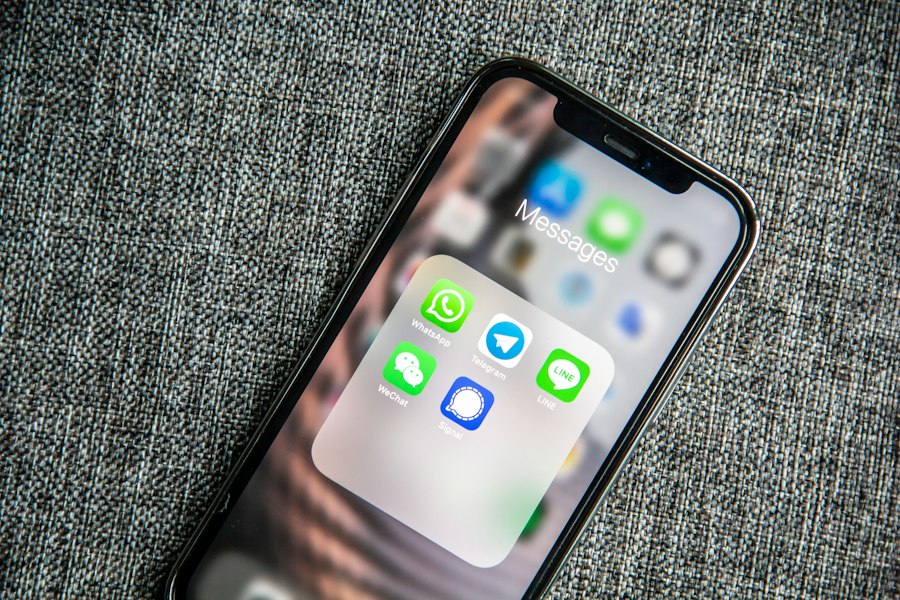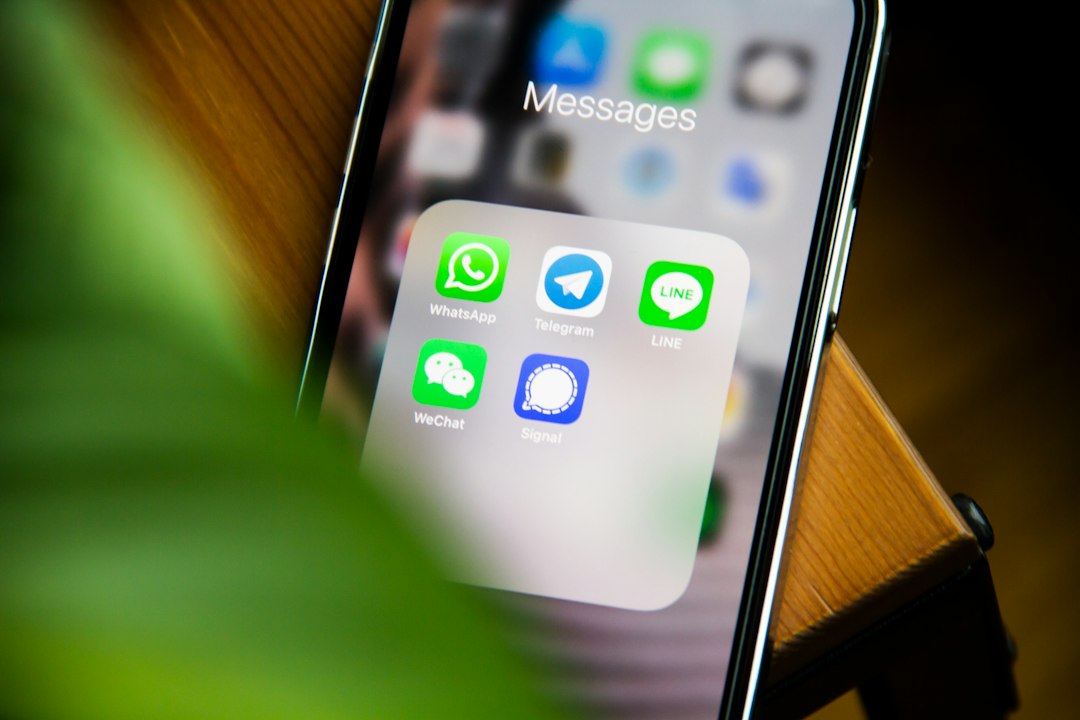WhatsApp is a popular messaging app that allows users to send text messages, make voice and video calls, and share media such as photos and videos. With over 2 billion users worldwide, WhatsApp has become an essential tool for personal communication. However, its features and capabilities also make it a valuable platform for businesses to connect with their customers on a more personal level.
In today’s competitive market, customer experience is crucial for businesses to differentiate themselves from their competitors. Personalization plays a significant role in creating a positive customer experience. When customers feel valued and understood, they are more likely to trust and remain loyal to a brand. WhatsApp provides businesses with the opportunity to build one-on-one connections with their customers, allowing for personalized communication that can enhance the overall customer experience.
Key Takeaways
- WhatsApp is a powerful tool for personalization in customer service and marketing.
- One-on-one customer connections are crucial for building strong relationships.
- WhatsApp’s features, such as messaging and chatbots, can be leveraged for personalized experiences.
- WhatsApp can enhance personalization in customer support and sales efforts.
- Integrating WhatsApp with CRM can improve personalization and measurement of success.
Understanding the Importance of One-on-one Customer Connections
Personalized communication is essential for businesses to establish strong relationships with their customers. When customers receive personalized messages, they feel valued and understood by the brand. This can lead to increased trust and loyalty, as customers are more likely to engage with a brand that takes the time to understand their individual needs and preferences.
One-on-one connections also allow businesses to gather valuable insights about their customers. By engaging in personalized conversations, businesses can learn more about their customers’ preferences, pain points, and expectations. This information can then be used to tailor products, services, and marketing efforts to better meet the needs of individual customers.
Leveraging WhatsApp’s Features for Personalized Customer Experiences
WhatsApp offers several features that businesses can leverage to create personalized customer experiences. Customized messaging options allow businesses to send tailored messages to individual customers or specific customer segments. This can include personalized greetings, product recommendations based on previous purchases, or exclusive offers for loyal customers.
In addition to text messages, WhatsApp also allows for personalized media sharing. Businesses can send images, videos, or audio messages that are relevant to individual customers. For example, a clothing retailer can send personalized outfit suggestions based on a customer’s previous purchases or style preferences.
Group chats on WhatsApp can also be used to create personalized customer communities. Businesses can create groups for specific customer segments, such as VIP customers or those interested in a particular product or service. This allows for personalized communication within a community of like-minded customers, fostering a sense of belonging and loyalty.
The Role of WhatsApp in Building Stronger Customer Relationships
Personalized communication through WhatsApp can have a significant impact on building stronger customer relationships. When customers receive personalized messages, they feel valued and appreciated by the brand. This can lead to increased trust and loyalty, as customers are more likely to engage with a brand that takes the time to understand their individual needs and preferences.
By engaging in one-on-one conversations with customers, businesses can also address any concerns or issues promptly. This shows customers that their feedback is valued and that the business is committed to providing excellent customer service. Resolving issues quickly and effectively can help build trust and loyalty, as customers feel supported and cared for by the brand.
Furthermore, personalized communication allows businesses to stay top-of-mind with their customers. By sending relevant and timely messages, businesses can keep customers informed about new products, promotions, or events. This ongoing communication helps to strengthen the relationship between the business and the customer, leading to long-term loyalty.
How WhatsApp’s Messaging Capabilities Can Enhance Personalization
Messaging is a powerful tool for personalized communication. Unlike traditional forms of communication such as email or phone calls, messaging allows for real-time conversations that are convenient for both businesses and customers. WhatsApp’s messaging capabilities enable businesses to provide personalized support and assistance to their customers quickly and efficiently.
Real-time messaging allows businesses to address customer inquiries or concerns immediately. This can help resolve issues faster and provide a better overall customer experience. Customers appreciate the convenience of being able to reach out to a business and receive a prompt response, which can lead to increased satisfaction and loyalty.
Messaging also allows for ongoing communication between businesses and customers. Instead of sending one-off messages, businesses can engage in continuous conversations with their customers. This allows for personalized follow-ups, recommendations, or updates, creating a more personalized and engaging customer experience.
The Benefits of Using WhatsApp for Personalized Customer Support

WhatsApp’s messaging capabilities make it an ideal platform for personalized customer support. Customers can reach out to businesses with their inquiries or concerns at any time, and businesses can respond promptly. This convenience is highly valued by customers, as it allows them to receive personalized solutions quickly and efficiently.
Messaging also allows for more personalized support compared to traditional customer support channels such as phone calls or emails. Businesses can have ongoing conversations with customers, allowing for a deeper understanding of their needs and preferences. This enables businesses to provide tailored solutions that address the specific concerns of individual customers.
Furthermore, WhatsApp’s messaging capabilities allow for the integration of other tools and resources that can enhance the customer support experience. For example, businesses can send links to knowledge base articles or video tutorials that provide step-by-step instructions for troubleshooting common issues. This self-service approach empowers customers to find solutions on their own while still receiving personalized support when needed.
Using WhatsApp for Personalized Marketing and Sales Efforts
WhatsApp offers businesses the potential for targeted marketing through its messaging platform. By leveraging customer data and insights, businesses can send personalized marketing messages to individual customers or specific customer segments. This targeted approach ensures that customers receive relevant offers or promotions that are tailored to their interests and preferences.
Personalized sales communication is also possible through WhatsApp. Businesses can engage in one-on-one conversations with potential customers, providing them with personalized product recommendations or answering any questions they may have. This personalized approach helps build trust and confidence in the brand, increasing the likelihood of a successful sale.
Furthermore, WhatsApp’s messaging capabilities allow for interactive marketing and sales experiences. Businesses can send interactive messages that require customer input, such as surveys or quizzes. This not only provides businesses with valuable customer insights but also creates a more engaging and personalized experience for the customer.
Integrating WhatsApp with CRM for Improved Personalization
Integrating WhatsApp with Customer Relationship Management (CRM) systems can further enhance personalization efforts. By connecting WhatsApp with CRM, businesses can access valuable customer data and insights that can be used to create more personalized experiences.
Integrating WhatsApp with CRM allows businesses to track and analyze customer interactions and conversations. This data can provide valuable insights into customer preferences, behaviors, and needs. Businesses can then use this information to tailor their products, services, and marketing efforts to better meet the needs of individual customers.
Furthermore, integrating WhatsApp with CRM enables businesses to automate certain processes and workflows. For example, businesses can set up automated responses or chatbots to handle common customer inquiries or provide basic information. This frees up time for customer support teams to focus on more complex or personalized interactions, improving overall efficiency and customer satisfaction.
Best Practices for Leveraging WhatsApp for One-on-one Customer Connections
To effectively leverage WhatsApp for one-on-one customer connections, businesses should follow these best practices:
1. Personalize messages: Tailor messages to individual customers or specific customer segments. Use their name, reference previous interactions or purchases, and provide relevant recommendations or offers.
2. Be responsive: Respond to customer inquiries or concerns promptly. Aim to provide solutions or assistance within a reasonable timeframe to ensure a positive customer experience.
3. Use multimedia: Take advantage of WhatsApp’s media sharing capabilities by sending images, videos, or audio messages that are relevant to individual customers. This can help create a more engaging and personalized experience.
4. Create customer communities: Use group chats to create personalized communities for specific customer segments. Encourage customers to engage with each other and provide opportunities for personalized communication within the community.
5. Gather feedback: Use WhatsApp to gather feedback from customers about their experiences with the brand. This can help identify areas for improvement and provide insights for future personalization efforts.
Measuring the Success of Your WhatsApp Personalization Efforts
Measuring the success of WhatsApp personalization efforts is crucial for ongoing improvement. Businesses can track several metrics to assess the impact of personalized communication on customer relationships and overall business performance.
Some key metrics to consider include:
1. Response time: Measure the average time it takes for your business to respond to customer inquiries or concerns. Aim to reduce response times to ensure a positive customer experience.
2. Customer satisfaction: Gather feedback from customers about their satisfaction with the personalized communication they receive through WhatsApp. Use surveys or ratings to measure customer satisfaction levels.
3. Conversion rates: Track the number of leads or sales generated through personalized marketing or sales communication on WhatsApp. Compare conversion rates to other marketing channels to assess the effectiveness of WhatsApp in driving conversions.
4. Customer retention: Monitor customer retention rates to determine if personalized communication through WhatsApp is helping to build stronger customer relationships and increase loyalty.
WhatsApp provides businesses with a powerful platform for creating personalized customer experiences. By leveraging its features and capabilities, businesses can build one-on-one connections with their customers, leading to increased trust, loyalty, and long-term relationships. Whether it’s through customized messaging options, personalized media sharing, or group chats for customer communities, WhatsApp offers businesses a range of tools for delivering personalized communication.
By using WhatsApp for personalized customer support, marketing, and sales efforts, businesses can enhance the overall customer experience and drive better business results. Integrating WhatsApp with CRM systems further improves personalization efforts by providing access to valuable customer data and insights. By following best practices and measuring the success of WhatsApp personalization efforts, businesses can continuously improve their customer relationships and stay ahead in today’s competitive market.
If you’re interested in learning more about leveraging WhatsApp’s features for one-on-one customer connections, you should definitely check out this insightful article from Martech. They delve into the power of personalization and how businesses can harness WhatsApp’s capabilities to create meaningful and personalized interactions with their customers. Discover the strategies and techniques that can help you build stronger relationships and drive customer loyalty. Don’t miss out on this valuable resource, click here to read the full article.
FAQs
What is WhatsApp?
WhatsApp is a messaging app that allows users to send text messages, voice messages, make voice and video calls, share images, documents, and other media.
What are the benefits of using WhatsApp for customer connections?
WhatsApp allows businesses to have one-on-one conversations with their customers, providing a personalized experience. It also allows for quick and easy communication, as well as the ability to send multimedia content.
What are some of the features of WhatsApp that can be leveraged for customer connections?
WhatsApp features that can be leveraged for customer connections include the ability to create and send personalized messages, use chatbots for automated responses, and use WhatsApp Business API for integration with other business tools.
How can businesses use WhatsApp for customer support?
Businesses can use WhatsApp for customer support by providing a dedicated phone number for customers to contact them, using chatbots for automated responses, and providing quick and personalized responses to customer inquiries.
Is WhatsApp secure for customer communications?
WhatsApp uses end-to-end encryption to secure all messages and calls, ensuring that only the sender and recipient can access the content. However, businesses should still take precautions to protect customer data and privacy.

